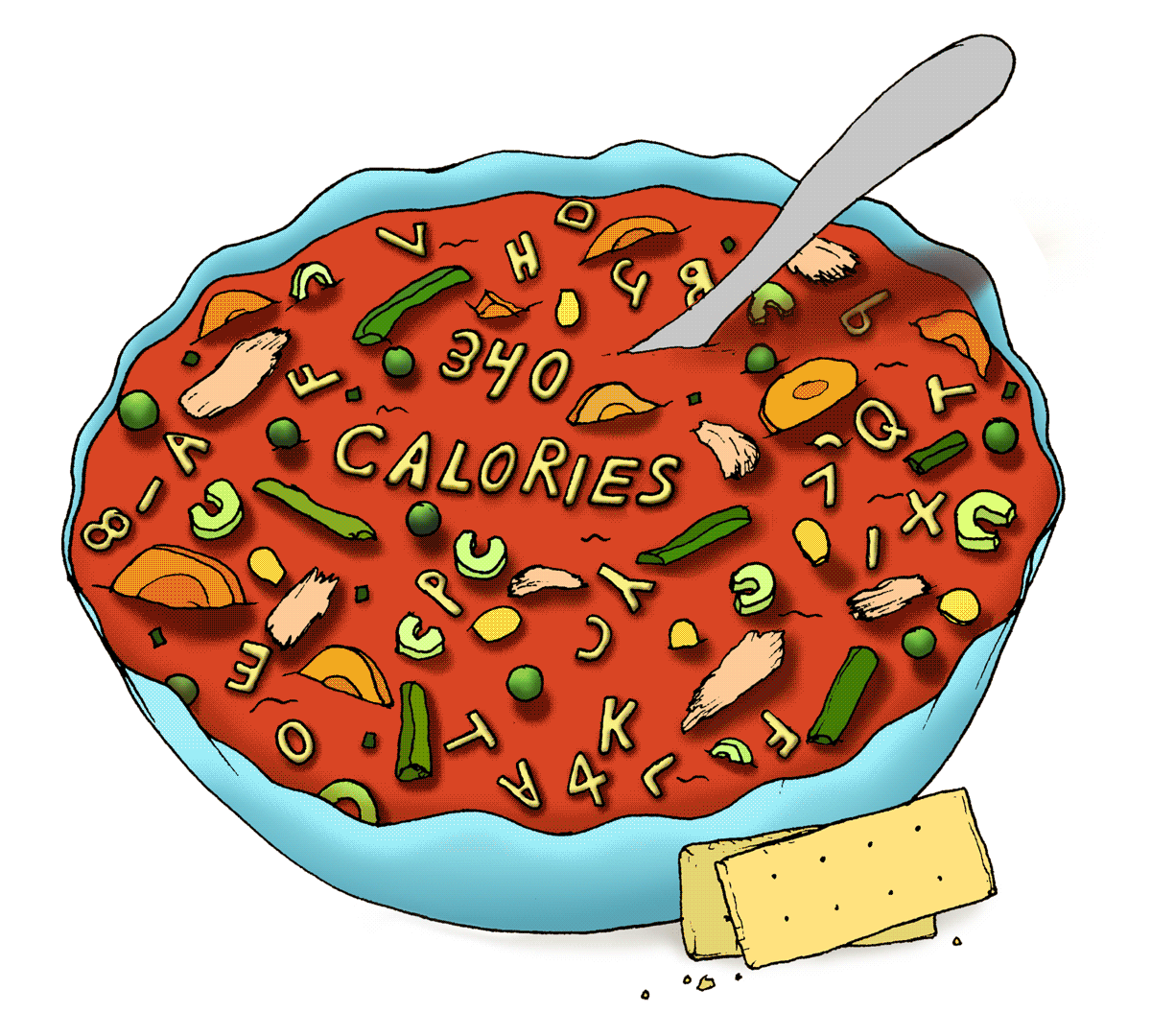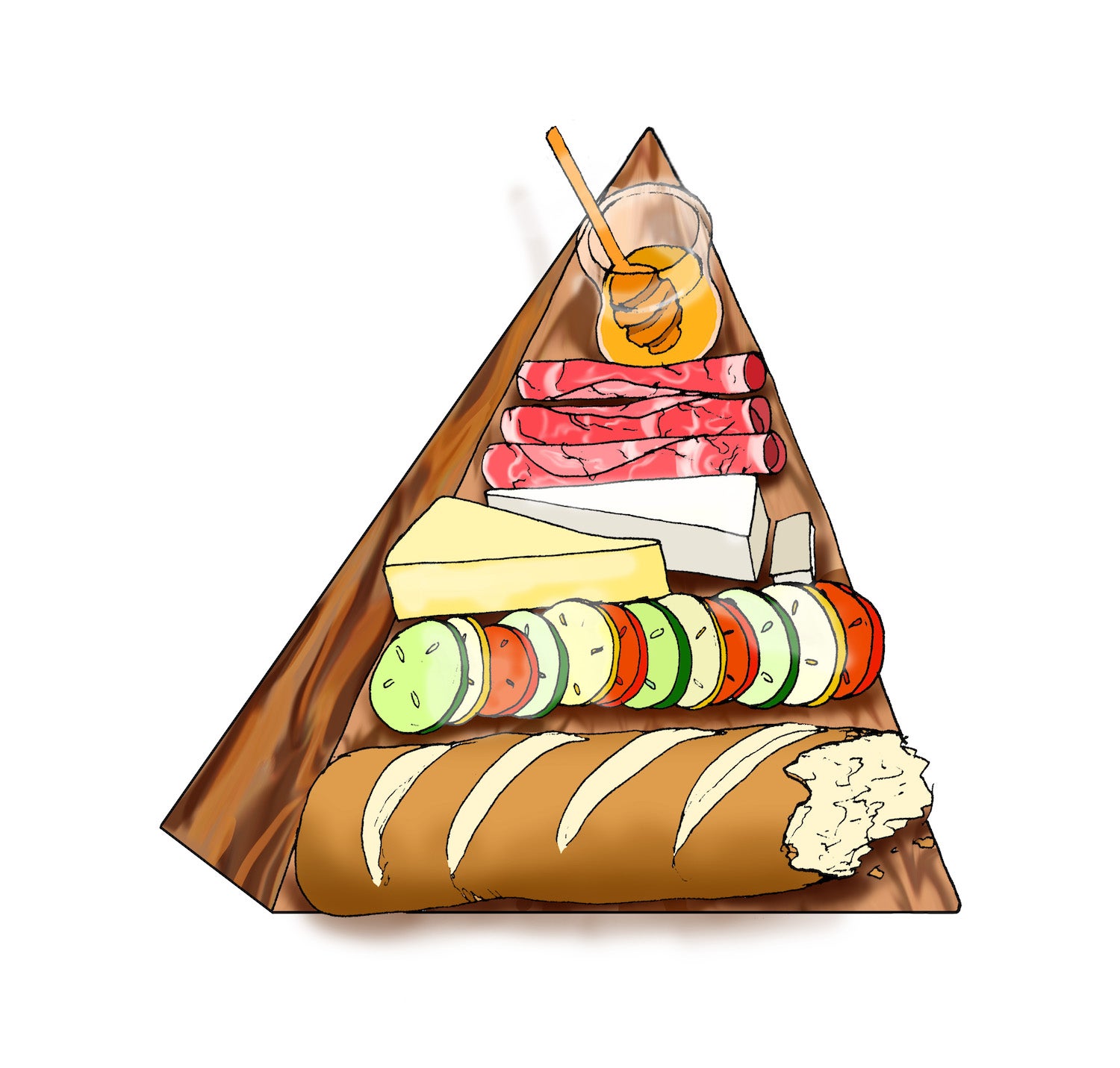
Nutritional information may seem like an objective metric, but including it in a cookbook is more complicated than you might think.
A few months ago, I asked my Facebook friends a question: Should cookbooks include nutritional information with their recipes? I’m a vegetarian cookbook author and not a health expert—I wouldn’t conflate these two things—but periodically I hear from readers who wish I’d add it to my books.
While the responses represented a small sampling, they nevertheless indicated a sensitive subject. “No,” said one friend, “it’s time we stop counting calories and focus on eating real food.” “YES PLEASE,” pleaded another, who tracks his macronutrient intake, as well as another person who has type I diabetes. “I’d rather not know,” one friend said, echoing a recurring theme of preferred ignorance. And for those familiar with the publishing industry, it was simply an audience-specific matter, desirable only when readers would want and expect it.
I don’t approach my cooking or recipes with nutrition at the forefront of my mind, but it’s always struck me as generally useful, like knowing which grade of gas you’re putting in your car. I started to think there might be some value in cookbooks like mine including it. What I’m talking about is the nutritional makeup of a food or recipe: grams of protein, carbohydrates, fat, sodium, and calories per serving. Science! While the application of this data may vary from one person to the next, it still seems objectively useful—certainly more useful than some of the cookbook conventions we’ve come to accept, like whole chapters devoted to banal pantry items, the impossible-to-accurately-generate “prep” times, or yet another recipe for pesto. Why not include nutritional info?
I asked my most recent editor, Rux Martin of Rux Martin Books, who also previously edited the magazine Eating Well, how she decides if a cookbook needs nutritional data. “If you’re making a claim that your book is about health and/or weight loss,” she said, “readers want to know the nutritional information so that they can decide for themselves how to balance their eating.” As far as my vegetarian cookbooks go, she sees little confusion in the matter: Since I don’t make health claims, they aren’t about health. No nutritional info necessary.

But as we continued talking, we agreed that what constitutes a “health” claim has started to get a bit blurry. This is due to what can only be described as a complete rebranding of health in cookbooks and culture at large. What used to be called diet and weight loss is now “health and wellness” or “clean eating,” and the word “diet,” tethered to its assumptions of losing weight, has gone out of fashion. Health is now a lifestyle, the idea being that one should feel healthy via ingredients and principles more akin to holistic medicine than to nutrient breakdowns. And even though many readers still approach such books with the goal of weight loss, that’s now considered a secondary aim; under this new framework, weight loss is at best an added perk. (One interesting by-product of this shift is that it’s now palatable for publishers and retail giants like Amazon to target customers with formerly-known-as-diet books—“wellness” and “clean eating” function as useful euphemisms.)
Perhaps most representative of this shift is The Whole30, that blockbuster elimination diet, which deliberately omits nutritional information from its literature. Authors Melissa Hartwig and Dallas Hartwig want readers to instead examine the food itself, and their 30-day “reset” requires removing major inflammation-causing food groups, such as dairy, legumes, gluten, and sugar, which they claim will help followers root out the causes of myriad health conditions. They ask readers to pay attention to their energy levels, monitor whether sleep and digestion improve and whether skin conditions clear up. And if, over the course of the program, readers lose weight, great—but that’s not the purpose. They advocate for what they call “non-scale victories.”
“What Whole30 and more contemporary diet plans argue is that it’s about what you eat,” said the book’s editor, Justin Schwartz. According to him, the nutritional-data framework around healthy eating has been in rapid decline. Five years ago it would have been inconceivable to publish a book containing the word “healthy” and to not include nutritional data, but these days it’s very rare.
But Ali Maffucci, founder and CEO of Inspiralized—an immensely popular website devoted to turning vegetables into noodles—as well as author of the best-selling cookbooks Inspiralized and Inspiralize Everything, always includes nutritional information with her recipes. It’s been a reader request since she first started blogging, and it was one of the first questions from her publisher when she began writing cookbooks. “I want to give my readers what they need to be their healthiest and if that’s nutritional info, so be it!” she told me over email.
She believes that ultimately the best diet is one focused on eating whole foods, but nutritional information is usually where people begin if they’re aiming to improve their eating habits. “It’s very overwhelming to people who have no idea where to start in a health journey,” she said. “Some people don’t understand the nutritional makeup of food and thus, they rely on the numbers to keep them on track of reaching a healthy weight.”
Cookbook publishers used to use software or third-party services to generate nutritional information—a tedious step that’s very sensitive to error, according to Schwartz, and he’s happy to see it go. But Maffucci prepares the nutritional info herself by weighing out ingredients and then plugging the data into online generators like MyFitnessPal or Google, which uses the USDA Food Composition Database. This marks another important shift in the conversation about nutritional information and where it belongs: Anyone with an Internet connection can find out a recipe’s nutritional data if they want it.
But for Gena Hamshaw, a certified nutritionist and author of Power Plates, her “compassionate” relationship with food informs not just being vegan, but her reasons for omitting nutritional information from her work: She knows firsthand that it can be triggering for those recovering from disordered eating. But as a nutritionist, she still believes that nutrition should be part of the conversation about healthy eating. It just need not be all about numbers. “I think you can be really interested in the nutrient properties of food and also really interested in how delicious it is,” she said. This plays out in Power Plates as meals that all include a good serving of protein, healthy fats, and complex carbohydrates. By covering these bases each time you eat, she says, “you’re working with a strong foundation.”
But in observing the ethos around healthy eating and its shift regarding nutritional data, Hamshaw cautions that unfortunately there’s no boilerplate approach that works for everyone. For those truly in a position where they need to lose weight, for example, it may still be important and helpful to examine nutritional data and to keep an eye on calories. For others, who are simply trying to eat healthfully overall, they need to decide what’s important, whether it’s nutrient breakdown, ingredient sourcing, or the elimination of selective food groups. “People have to figure out their own philosophy about all of that,” she said.
I should have suspected it from the strong opinions my Facebook question elicited, but it became abundantly clear that nutritional info doesn’t really tell the whole story of what we decide to cook and to put into our bodies. Hamshaw prompted me to recall my own philosophy, my response when I’m asked about how one can eat more healthfully. For me it comes down to cooking: Just cook as many of your meals as you can, and then you know what you’re putting into your body. Can you know what you’re eating if you don’t have the nutritional information? Yes and no, and perhaps it’s a matter of opinion. But you can get the nutritional data if you want it. This may not suit everyone, but it’ll suit my cookbooks just fine.